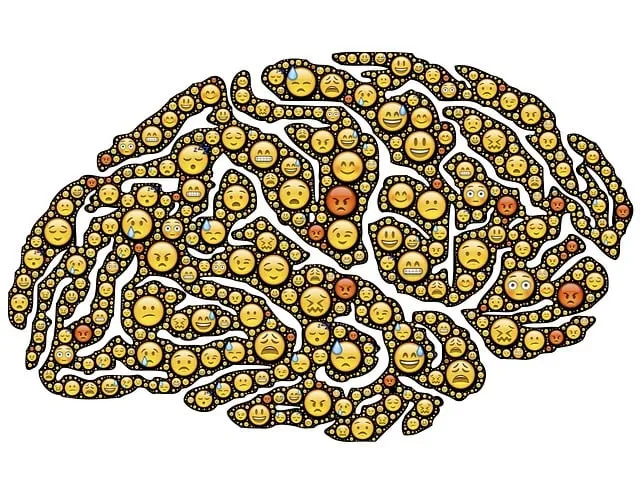The Greenwood Village Kaiser Model offers a transformative strategy for mental health policy reform, focusing on holistic care within vibrant communities. Their programs combat stigma, improve access, and promote early intervention by integrating mental health awareness and tailored support. Through initiatives like self-care routines and resilience building, these programs have shown significant positive outcomes, empowering individuals to manage their mental well-being. Advocacy is key to progressive mental healthcare, destigmatizing issues and ensuring equitable access to services; collaborative efforts with stakeholders result in effective, inclusive care models, such as those implemented by the Greenwood Village Kaiser mental health programs.
Mental health policy analysis and advocacy are critical components of ensuring equitable access to quality care. This article explores the Greenwood Village Kaiser Model as a framework for understanding mental health policy, analyzing existing programs like the Greenwood Village Kaiser mental health programs, and discussing effective advocacy strategies for positive change in mental healthcare access. By examining these aspects, we aim to illuminate paths toward more comprehensive and effective mental health support systems.
- Understanding Mental Health Policy: The Greenwood Village Kaiser Model
- Analysis of Existing Programs and Their Impact
- Advocacy Strategies for Positive Change in Mental Healthcare Access
Understanding Mental Health Policy: The Greenwood Village Kaiser Model

The Greenwood Village Kaiser Model offers a compelling framework for understanding and shaping mental health policy. This innovative approach, pioneered in a vibrant community setting, focuses on holistic care, emphasizing the interconnectedness of physical and psychological well-being. The model recognizes that mental health is not merely the absence of illness but a vital component of overall health, necessitating proactive strategies such as Burnout Prevention Strategies for Healthcare Providers and fostering Self-Care Practices among individuals.
By integrating Mental Health Awareness into community life, the Greenwood Village Kaiser programs aim to reduce stigma, increase access to care, and promote early intervention. This inclusive initiative ensures that mental health support is not only available but also culturally sensitive and tailored to diverse needs. The model’s success lies in its ability to create a supportive environment where individuals can thrive, demonstrating the potential for policy advocacy to revolutionize healthcare delivery and improve societal well-being.
Analysis of Existing Programs and Their Impact

The Greenwood Village Kaiser mental health programs have been a subject of interest and analysis due to their impact on the community’s overall mental wellness. These programs offer a range of services, from individual therapy sessions to group support meetings, designed to cater to diverse mental health needs. An in-depth analysis reveals that these initiatives have significantly contributed to raising awareness about mental health issues and reducing stigma. Many participants report improved symptoms and enhanced coping strategies after engaging in Self-Care Routine Development for Better Mental Health and Resilience Building programs.
The effectiveness of these interventions is evident in the increased access to resources and support networks among community members. Mental Wellness Coaching Programs Development has been particularly successful in empowering individuals to take charge of their mental health journeys. This holistic approach, which combines therapy with practical tools for self-care, has fostered a sense of agency, enabling participants to build resilience and navigate life’s challenges more effectively.
Advocacy Strategies for Positive Change in Mental Healthcare Access

Advocacy plays a pivotal role in shaping mental healthcare policies and ensuring access to quality services for all. When it comes to driving positive change, strategies such as public awareness campaigns and community engagement are powerful tools. By utilizing various communication channels, advocates can shed light on mental health issues, dispel stigma, and educate the public about available resources, including programs like those offered by Greenwood Village Kaiser.
Effective advocacy also involves collaborating with policymakers, healthcare providers, and community organizations to design and implement Mental Health Education Programs that cater to diverse needs. Promoting Stress Management techniques and Communication Strategies can further enhance access and outcomes. These initiatives, when coupled with robust data and personal stories, have the potential to revolutionize mental healthcare, making it more inclusive and responsive to individual needs.
Mental health policy analysis and advocacy are vital components in ensuring equitable access to quality care. By learning from innovative models like the Greenwood Village Kaiser approach, which focuses on comprehensive community-based programs, we can analyze existing initiatives and identify areas for improvement. Through effective advocacy strategies, such as raising awareness, building alliances, and leveraging data, positive changes in mental healthcare can be fostered. Expanding access to evidence-based practices, especially in underserved communities, is crucial to transforming lives and fostering resilient societies.






